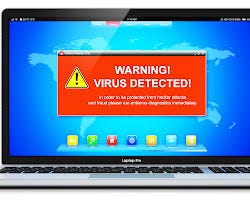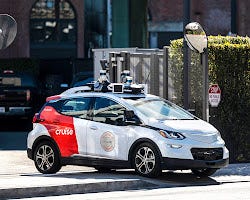Abstract G. Edward Griffin
G. Edward Griffin is a right-wing author and conspiracy theorist who is known for his controversial views on various social and political issues. He is a prolific writer and has authored several books on topics related to politics, economics, and health. Griffin is best known for his book "The Creature from Jekyll Island," which is a critique of the Federal Reserve system. He is also a vocal advocate of alternative medicine and has written extensively on the subject. However, Griffin's views on topics such as climate change, vaccinations, and the New World Order have been widely criticized as unfounded and conspiratorial. Despite this, he continues to be a popular figure among the right-wing and libertarian communities.
Abstract
Sure, here is an abstract on Covid-19 The Great Reset: Klaus Schwab.
Abstract on Klaus Schwab
The Great Reset is a proposal by Klaus Schwab, founder and executive chairman of the World Economic Forum, for a global economic restructuring in response to the COVID-19 pandemic. The proposal calls for a more equitable and sustainable economic system that prioritizes social justice and environmental protection.
Schwab argues that the COVID-19 pandemic has exposed the weaknesses of the current economic system and created an opportunity for a reset. He proposes a number of changes to the system, including:
* A focus on stakeholder capitalism, which means that businesses should be accountable to all stakeholders, not just shareholders.
* A more equitable distribution of wealth and income.
* A shift to a green economy that prioritizes environmental protection.
* A more democratic and inclusive global governance system.
The Great Reset has been met with mixed reactions. Some people have praised it as a necessary and timely call for change, while others have criticized it as a utopian fantasy or a power grab by the global elite.
**Keywords:** COVID-19, The Great Reset, Klaus Schwab, stakeholder capitalism, green economy, global governance
Significance
The Great Reset is a significant proposal that has the potential to reshape the global economic system. It is important to understand the proposal and its potential implications so that we can make informed decisions about the future of our world.
Article
G. Edward Griffin is an American author, filmmaker, and conspiracy theorist. He has written over 40 books on a variety of topics, including politics, economics, health, and history. Griffin's writings often promote right-wing views and conspiracy theories.Covid-19 The Great Reset: Klaus Schwab: COVID-19: The Great Reset:https://amzn.to/43OLdNs
One of Griffin's most well-known books is World Without Cancer, which argues that cancer is a nutritional deficiency that can be cured by consuming amygdalin, a substance found in bitter almonds. Griffin's claims about cancer have been widely criticized by the scientific community.Book: World Without Cancer; The Story of Vitamin B17: https://amzn.to/3qNPPoh
Griffin has also written extensively about the Federal Reserve System, which he believes is a tool of the Illuminati. He is also a supporter of the 9/11 Truth movement and believes that the attacks were carried out by the U.S. government.
Griffin's writings have been praised by some for their provocative insights, but they have also been criticized for being misleading and inaccurate. Griffin has been accused of promoting pseudoscience and conspiracy theories, and his work has been dismissed by many as being crackpot.
Global Governance System: Pros and Cons
Global governance is the system of rules, norms, and institutions that govern relations between states and other actors in the international system. It is a complex and evolving system, and there is no single definition of what it encompasses. However, some of the key elements of global governance include:
* International organizations, such as the United Nations, the World Bank, and the International Monetary Fund.
* Transnational networks of experts and officials.
* Private sector actors, such as multinational corporations and non-governmental organizations.
Global governance has a number of potential benefits. It can help to manage common problems, such as climate change, terrorism, and pandemics. It can also help to promote peace and security, human rights, and economic development.
However, there are also some potential drawbacks to global governance. It can be difficult to achieve consensus among so many different actors. It can also be seen as undemocratic, as it is often dominated by powerful states and private interests.
Here is a table of the pros and cons of global governance:
| Pros | Cons |
| Can help to manage common problems | Can be difficult to achieve consensus |
| Can promote peace and security | Can be seen as undemocratic |
| Can promote human rights | Can be dominated by powerful states and private interests |
| Can promote economic development |
Overall, global governance is a complex and evolving system with both potential benefits and drawbacks. It is important to weigh the pros and cons carefully when considering the role of global governance in the world today.
Here are some additional thoughts on the pros and cons of global governance:
Pros:
* Global governance can help to address global challenges that no single country can solve on its own.
* It can help to promote cooperation and coordination between countries.
* It can help to build trust and understanding between countries.
Cons:
* Global governance can be slow and inefficient.
* It can be difficult to get all countries to agree on common goals.
* It can be seen as a threat to national sovereignty.
Ultimately, the decision of whether or not to support global governance is a complex one. There are both potential benefits and drawbacks to consider. However, it is clear that global governance will play an increasingly important role in the world in the years to come.











